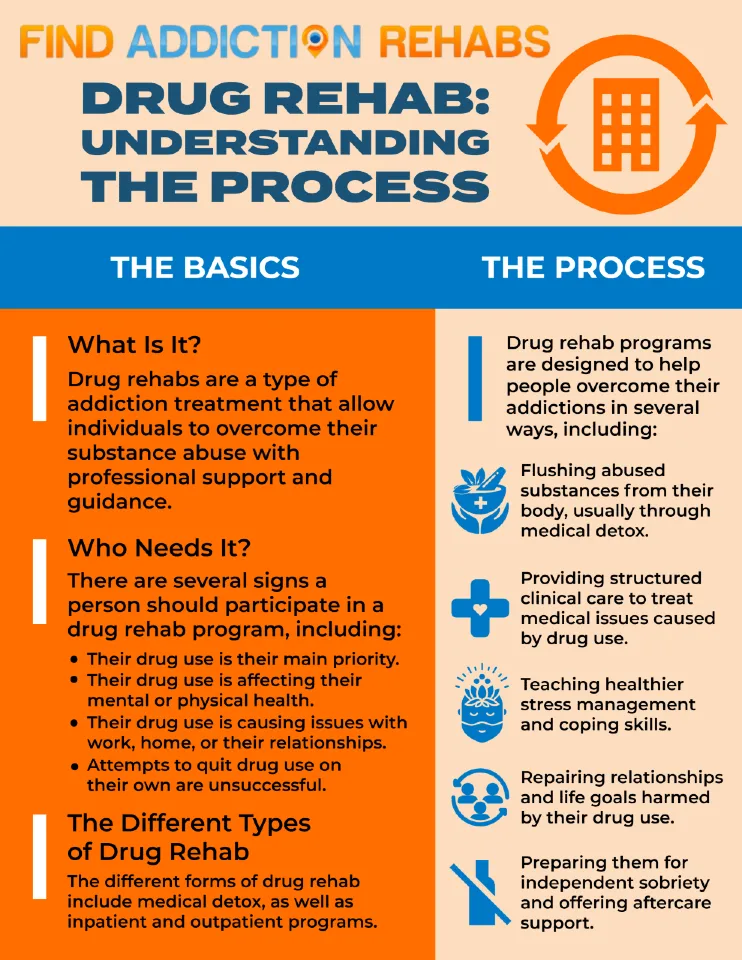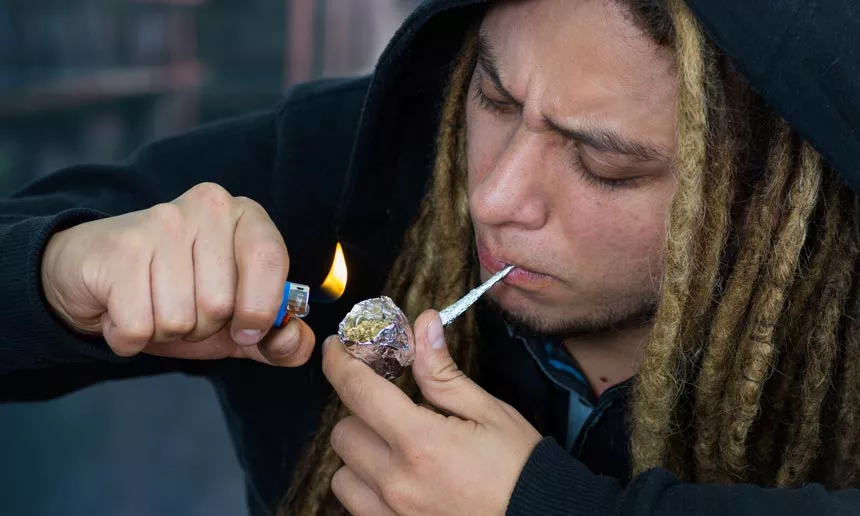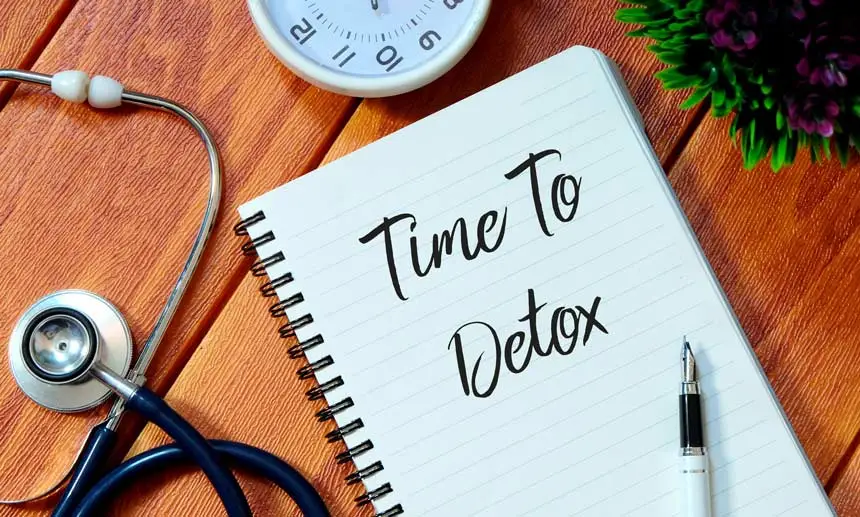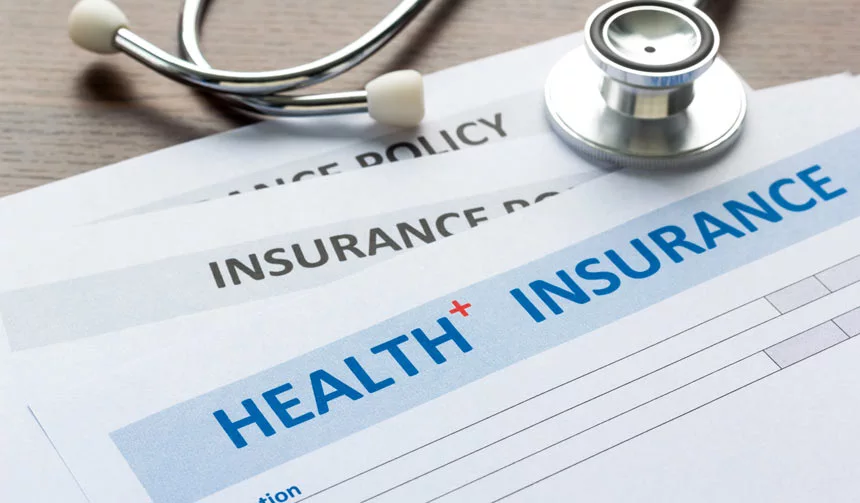What is Drug Rehab?
Table of Contents
- What is Drug Rehab?
- Understanding Drug Addiction
- Who is at Risk of Drug and Alcohol Abuse?
- Understanding the Relationship Between Mental Health and Addiction
- The Risks of Drug Abuse
- How to Tell if Someone is Struggling with Drug Addiction
- Who Should Seek out a Drug Rehab Program?
- The Different Levels of Care in Addiction Treatment
- What are the Signs of Good Addiction Treatment Centers?
- Does Insurance Cover Drug and Alcohol Rehab Services?
- Finding State-Funded Drug Rehab Centers
- Finding Drug Rehab Centers and Other Substance Abuse Treatment Options Near You
- Medically Reviewed By
For those struggling with a drug or alcohol addiction, overcoming their substance abuse on their own can be extremely difficult; for some, this may even feel impossible. This is why many people will seek out a professional addiction treatment program in order to help them get sober.
This will likely include participating in drug or alcohol rehab treatment programs, which are designed to help addicted individuals overcome their habits of substance abuse in several ways, including:
- Flushing an abused substance from their body, usually through gradually weaning them off of their alcohol or drug abuse; this process is referred to as a medically supervised detox.
- Providing clinical support and structure to help clients recover from any potential physical health complications caused by their substance use.
- Moving a client past the negative psychology caused by an active addiction to a positive recovery mindset.
- Recovering a client’s normal, healthy relationships, hobbies, and practices before these were affected by their substance misuse.
- Helping clients to learn how to handle the stress and complications of day-to-day life, without resorting to substance use as a coping mechanism.
- Helping clients understand that their recovery process will be a lifelong commitment, requiring constant effort and proactiveness in order to maintain their abstinence.
- Preparing clients to take on independent sober-living, and providing aftercare support services for ongoing recovery.
Understanding Drug Addiction
It is important to understand that someone who is struggling with substance abuse problems likely did not get to this point with the intention of doing so. Rather, many individuals resort to alcohol or drug abuse as a means of coping with the stress and negativity of their daily lives.
Over time, unfortunately, these habits can get out of hand. The more a person abuses a particular substance, the higher of a tolerance their body will build to it. This will eventually lead to a psychological or physical dependency on the abused substance.
This means that, in order to be able to feel or function normally, a person will need to continue using drugs or alcohol; often more frequently and in larger, and potentially dangerous, amounts.
This can make it incredibly hard to overcome a substance addiction by oneself, as stopping their drug or alcohol abuse without external support can be extremely uncomfortable, both physically and emotionally.
The Rise of Substance Abuse Within the United States
Over the past few years, the U.S. has seen a sharp increase in drug and alcohol abuse throughout the nation. According to a national survey conducted on drug use and health in the U.S. in 2016, an estimated 20.1 million people ages 12 and over had a substance use disorder.
Of these individuals, around 15.1 million struggled with alcohol addiction, while the other 7.4 million struggled with illicit drug use. Among those who had an illicit drug use disorder, the most common of these involved marijuana, heroin, and cases of prescription drug addiction.
As these alarming numbers have only continued to rise in recent years – and show no signs of slowing – the need for effective substance abuse treatment programs, as well as better education on and the de-stigmatization of addiction has become more critical than ever.
Who is at Risk of Drug and Alcohol Abuse?
One of the most misunderstood aspects of addiction is that only a specific demographic of individuals are at risk of developing this disease. However, this is a false belief. Addiction affects all people, regardless of their personal or social backgrounds.
Of course, while anyone can fall into habits of drug or alcohol abuse, there are certain risk factors that may make someone more prone to developing a substance addiction. These include:
- Genetic Factors
- Environmental Factors
- Early Use
- Type and Method of Use
Genetic Factors
Heredity can contribute up to half of a person’s risk of developing an addiction. For those with a family history of substance abuse, these individuals may have an increased likelihood of forming addictive habits themselves, whether these involve drugs, alcohol, or other addictive behaviors, such as gambling.
Environmental Factors
Certain environmental factors can also make individuals more prone to problematic substance use. Amongst children and young adults, a lack of parental involvement, or experiencing other forms of abuse, may make them more prone to risky behavior.
Most commonly, the behavior will involve their experimenting with drugs or alcohol. Furthermore, negative or stressful social, work, or living environments may also lead to substance use as a coping mechanism.
Early Use
Those who start abusing substances at an early age will also be at increased risk of developing a drug or alcohol addiction later on in life. This appears to be mostly due to the fact that the brain is still developing when this use starts.
As a result, its chemical structure can become permanently altered by these addictive substances. This can make young adults more likely to develop several behavioral health issues in the future.
Type and Method of Use
The speed at which an addiction progresses can vary dramatically depending on what substance is being abused. Drugs such as cocaine, heroin, and methamphetamines can cause the body to become dependent upon them much faster than alcohol or marijuana.
Likewise, a person’s method of substance use can also increase their risk of forming an addiction. For example, smoking or injecting a drug will allow it to reach the brain more quickly and intensely, making it far more addictive.
Understanding the Relationship Between Mental Health and Addiction
In addition to those listed above, another major risk factor for developing an alcohol or drug addiction is the presence of any mental health or mood disorders; specifically, those that have gone undiagnosed or untreated.
According to the Substance Abuse and Mental Health Services Administration (SAMSHA), various forms of therapy should be incorporated into an addiction treatment program’s recovery approach.
This is because many individuals who are struggling with a substance use disorder will also be simultaneously affected by some sort of mental illness. These are referred to as co-occurring disorders, or dual diagnosis.
In many cases, someone who has a mental health disorder such as depression or anxiety will begin abusing drugs or alcohol in an attempt to self-medicate the negative thoughts and feelings this condition may cause.
Unfortunately, while this may provide temporary relief from these uncomfortable emotions, continuing to rely on these substances can actually end up making their mental illness worse over time, or even cause new behavioral problems to develop; including, of course, addiction.
The Risks of Drug Abuse
There are several risks associated with habits of drug abuse. While these may vary based on the specific drug a person has formed an addiction to, there are several negative physical, mental, and social consequences that can result from general habits of substance abuse.
Physical Effects of Substance Abuse
For those who have developed habits of chronic substance use, this behavior can cause various short-term and long-term physical effects. In some cases, these short-term issues may contribute to some of the long-term changes that may occur within or to a person’s body.
While the specific physical side effects of substance use will generally vary depending on a person’s specific abused substance, dosage, delivery method, and time spent using, some of the more common of these include:
- Reduced cognitive function
- Heart problems
- Organ damage with long-term abuse
- Increased risk of injury
- Weakened immune system
Furthermore, for those struggling with addiction, their chronic habits of substance abuse can also lead to quite serious and potentially irreversible health complications, including brain damage, seizures, coma, and even fatal overdose.
Mental Effects of Substance Abuse
The exact mental or cognitive effects a person’s substance abuse may have will vary depending on the type of drug they are using, and how long they are using it. For example, long-term use of psychoactive drugs can cause integral changes to the brain’s structure and ability to function.
On a more general level, long-term drug abuse will likely significantly impact a person’s memory, behavior, learning ability, level of consciousness, and concentration. This may also worsen symptoms caused by other mental disorders, such as anxiety, depression, or psychosis.
Social Effects of Substance Abuse
Many people who are struggling with an alcohol or drug addiction will likely experience significant breakdowns within their personal relationships. This includes those with family, friends, romantic partners, and even their co-workers.
This is because the mental and physical side effects of their addiction, along with the compulsive need to spend as much time using as possible, can make it impossible to keep up with their work, home, or school responsibilities.
There may also simply just be a lack of desire to maintain these relationships present. This is not necessarily because they do not care for or value their loved ones. Rather, their physical and psychological dependence on an abused substance makes its use top priority at all times.
This is why many individuals who make the decision to seek out professional addiction recovery services will have rebuilding the personal relationships destroyed by their addictive habits serve as a priority in their treatment process.
How to Tell if Someone is Struggling with Drug Addiction
It can be hard to accept when you or a loved one may be struggling with addiction. However, it is absolutely crucial to do so in order to finally be able to start the drug rehab process. There are several signs that may indicate that someone is abusing drugs or alcohol, including:
- Taking a substance in larger doses or for longer than originally intended.
- Wanting to reduce or stop use of a substance, but being unsuccessful in this process.
- Spending large amounts of time acquiring, using, or recovering from the effects of a substance.
- Experiencing intense substance cravings when not using it.
- Having difficulty keeping up with work, home, or school responsibilities due to substance use.
- Continuing to use a substance despite this causing problems within relationships.
- Giving up important or previously enjoyable activities, obligations, or hobbies in order to continue using a substance.
- Using a substance even in potentially dangerous situations, such as while driving, operating heavy machinery, or performing other risky activities.
- Continuing to use a substance despite this potentially causing or worsening an underlying physical or mental health condition.
- Developing a tolerance to a substance, and needing to use increasingly higher doses or more frequently in order to achieve a desired effect.
- Developing withdrawal symptoms when no longer using a substance.
If you recognize any of the above behaviors in yourself or a loved one, it may be time to begin seeking out professional treatment programs, before these habits have the chance to get any worse.
Who Should Seek out a Drug Rehab Program?
When it comes to those struggling with drug addiction, it is quite common for these individuals to downplay the severity of their habits and convince themselves they do not need help. This, however, is likely not true, as the effects of addiction can be extremely harmful in various ways.
If you or a loved one is abusing drugs, it can be helpful, and even life-saving, to know how to recognize when it is time to get help. Signs that can indicate someone’s addiction will need professional treatment and support include:
- Their drug use has become a top priority.
- Their mental or physical health is being affected.
- Their personal relationships are being affected.
- Attempts to quit on their own are unsuccessful.
The Different Levels of Care in Addiction Treatment
When it comes to the substance abuse recovery process, there are several different primary levels of care that may be used for treating addiction. Depending on an individual’s personal care needs, the treatment options that will likely best work for them may vary.
Some of the most common treatment methods used in the drug rehab process include medical detox, inpatient rehab programs, and outpatient programs. This may also entail behavioral therapy or other mental health treatment options.
According to the National Institute on Drug Abuse (NIDA), integrating multiple of these treatment options together can give these individuals their best chance at a successful recovery. This helps to ensure every aspect of their substance abuse habits are addressed and treated.
Looking for a specific treatment provider or rehab program that fits all of your recovery needs can be a difficult and overwhelming process. Seeking professional medical advice from your primary care physician and speaking with addiction counselors, such as a Find Addiction Rehabs representative, can help you narrow down these options.
Medical Detox
For those seeking out drug and alcohol rehabilitation services, individuals with more severe addictions will generally first participate in a medical detox treatment program. This level of care may be offered as a part of the recovery approach for certain inpatient or outpatient drug addiction rehab centers.
However, these may also serve as a standalone form of treatment. When recovering at a detox treatment center, individuals will be gradually weaned off of an abused substance under the constant supervision of a licensed medical provider.
This can help manage and prevent uncomfortable withdrawal symptoms, as well as reduce a recovering person’s risk of relapse. Once detox has been completed, many people will move on to other drug rehab programs, most commonly inpatient and outpatient rehab options.
Inpatient Treatment
Inpatient rehab is a form of addiction treatment that requires clients to live at a treatment center throughout the entirety of their recovery process. This helps to ensure these individuals are receiving the most structured and intensive care possible.
Inpatient drug rehab centers will typically provide a combination of substance abuse and mental health services, as well as various holistic recovery techniques within their treatment approach. This is why many individuals will choose to recover at an inpatient program, as these can offer various treatment options that are capable of addressing all of their clients unique care needs.
Of course, these options may also be more expensive. For those who are looking for a more affordable and flexible form of drug rehabilitation, outpatient treatment options may best suit these needs.
Outpatient Treatment
Outpatient drug rehab programs serve as a less-intensive, but cheaper and more flexible form of addiction treatment. Unlike inpatient rehab, recovering through an outpatient treatment program will not require an individual to live at these treatment centers.
Rather, they will likely attend sessions held by sober support groups and addiction recovery programs, such as Alcoholics Anonymous (AA) or Narcotics Anonymous (NA), several times a week.
These will typically be hosted at an outpatient rehab facility, and can provide access to addiction education and recovery resources. This level of care may also offer various holistic and therapeutic treatment methods.
Dual Diagnosis Treatment
For those who are struggling with substance abuse and mental health issues, seeking out a dual diagnosis treatment facility may be their best option for a successful recovery. This may be offered through both an inpatient drug rehabilitation center, or an outpatient facility.
Dual diagnosis treatment centers will likely offer a number of mental health and drug treatment services, including:
- Behavioral therapy
- Group therapy
- Individual therapy
- Family therapy
- Sober support groups
Through treating both the person’s substance abuse habits, as well as their potential underlying causes, this level of drug rehab can be an addicted person’s best chance at achieving lifelong recovery.
What are the Signs of Good Addiction Treatment Centers?
Now that you know what levels of care may be entailed when seeking out drug rehab, it is important to know how to recognize which of these treatment centers will provide quality care when helping you overcome your addiction.
Fortunately, there are several signs that can indicate a high-quality treatment program, including:
- Licenses and accreditations
- Individualized treatment plans
- Low client-to-staff ratios
- Continuing care options
Licenses and Accreditations
If a drug rehab program has been certified with licenses and accreditations from highly trusted sources, this is one of the biggest signs that this provider offers high-quality care.
Organizations such as The Joint Commission, the National Association of Addiction Treatment Providers, and the Commission on Accreditation of Rehabilitation Facilities are some of the most reliable certifiers of quality patient care within the behavioral health industry.
Individualized Treatment Plans
Because addiction is such a personal disease, an individual’s approach to recovery should be uniquely customized to fit their specific care needs. This is why most top drug rehab centers will prioritize providing each of their clients with individualized treatment plans.
In doing so, recovering addicts and their treatment providers will be able to work together to assess their substance abuse and personal health needs, in order to create a highly extensive recovery approach that caters specifically to them.
This may entail the incorporation of several addiction treatment methods into their recovery plan, such as detox, medication-assisted treatment, and various other clinical, holistic, and therapeutic services.
Low Client-to-Staff Ratios
Recovering from addiction is often a long and complicated process, usually requiring significant support in order to comfortably get through. This is why top drug rehab centers, whether you’re looking for drug rehab in Texas or one in Maine, will prioritize having low client-to-staff ratios.
This ensures that everyone, including both the clients and their treatment providers, will have more time to properly focus on their recovery process and form the necessary levels of trust and care to successfully overcome their habits of abuse.
A low client-to-staff ratio also allows treatment providers to properly handle any possible medical emergencies that may occur during a client’s stay at a rehab center, as they are not tied up with having to deal with the needs of multiple people at one time.
While a good client-to-staff ratio can vary based on a specific treatment center, this number generally ranges from anywhere between 1:3 and 1:10. When being treated for co-occurring disorders, this number will ideally fall towards the lower end of this spectrum.
Continuing Care Options
Any good drug rehab program will understand that the addiction recovery process does not end after initial treatment has been completed. Rather, this will be a life-long battle for recovering individuals.
This is why many top addiction treatment centers will offer continuing care options to their clients, as these can be a key component in helping them remain committed to their sobriety and maintaining their abstinence.
These programs may be offered through the same facility or, they may be provided at a different drug rehab center. Most aftercare services will primarily utilize sober support groups, community outreach programs, and various other methods of supporting lifelong recovery from addiction.
Does Insurance Cover Drug and Alcohol Rehab Services?
Many people will avoid seeking professional drug rehab services due to financial concerns. Fortunately, many private health insurance companies will provide coverage for a number of addiction treatment options.
This may include both inpatient and outpatient options, as well as medical detox. While the level of insurance coverage a person may be able to receive will depend on their specific insurance provider and policy, some people can receive up to full coverage for their treatment.
If you are unsure of what level of insurance coverage you may be entitled to, you can find out today just by using the Find Addiction Rehabs fast, free, and private insurance verification tool; or contact a FAR representative directly by calling our 24/7 hotline.
Finding State-Funded Drug Rehab Centers
For many people seeking treatment, paying themselves or with insurance is simply just not an option. In these cases, there are various state-funded mental health and addiction services that individuals can seek out for their addiction care needs.
While the services offered by these programs may not be as extensive as those provided in private drug rehab facilities, they are still able to offer a necessary level of support and professional assistance to recovering individuals. This can provide them with a far better chance of achieving sobriety than if they were to attempt to quit using on their own.
You can find state-funded drug rehab centers in your area using the SAMSHA behavioral treatment services locator here. Or, use the Find Addiction Rehabs free drug and alcohol rehab directory.
Finding Drug Rehab Centers and Other Substance Abuse Treatment Options Near You
If you or a loved one is struggling with alcohol or drug addiction, finding addiction treatment options that work for all of your care needs can be a difficult and overwhelming process; but it doesn’t have to be.
At Find Addiction Rehabs, we help connect people like you with drug rehab centers and addiction treatment providers that are dedicated to helping you achieve lifelong recovery from substance use.
Our hotline is available 24/7 so that you can receive professional treatment advice from drug abuse counselors and access recovery resources, anytime you need them! Just by calling today, we can help you find the support you need.
So make the right choice and call now, so that we can help you take that first step on your recovery journey, where you can discover a happier, healthier, and substance-free you, today!
Nicole Rogers is an experienced and accomplished writer with special interests in the fields of Anthropology, English, and behavioral health, and has written countless articles for newspaper publications, institutional research journals, and Find Addiction Rehabs.
Her alma mater is Florida Atlantic University in Boca Raton. Nicole hopes to spread awareness of and combat the stigmatization surrounding addiction and substance abuse treatment through her writing and work in the field.












